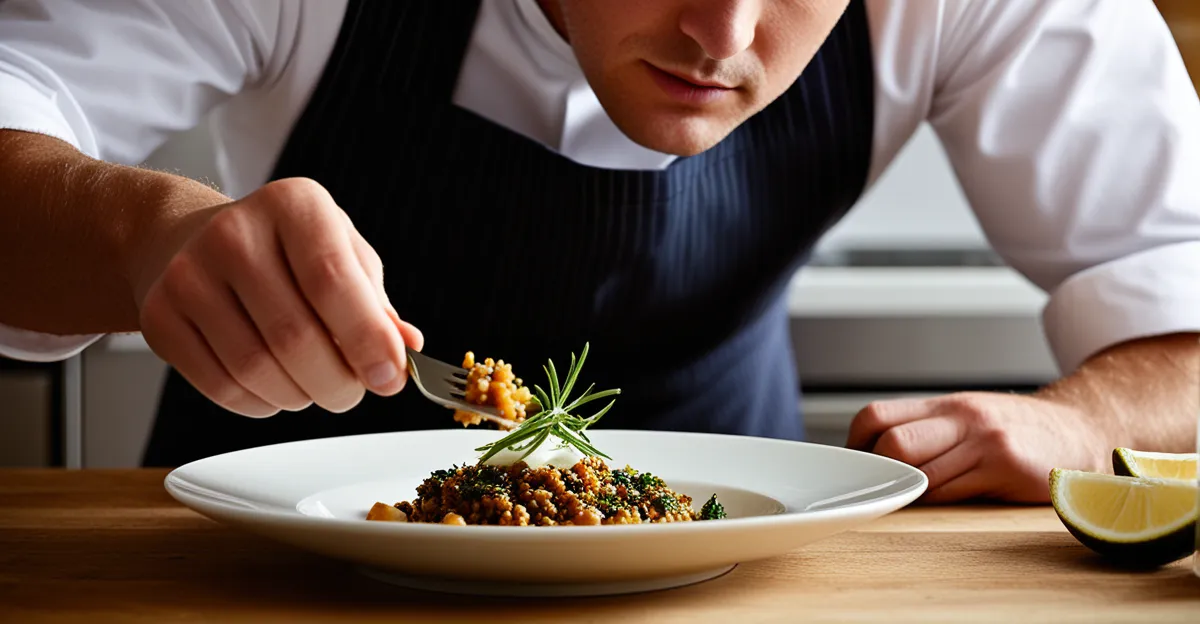Defining the Transformation of British Cuisine
The culinary transformation of British cuisine has been marked by significant key innovations that redefined its traditional image. Historically, British food was often viewed as simple and utilitarian, focusing largely on hearty roasts, stews, and puddings. However, modern British cuisine departs from this, embracing diverse ingredients, refined techniques, and creative presentations.
A pivotal moment in this transformation was the incorporation of continental cooking methods and a focus on freshness and seasonality. The rise of chefs experimenting with texture, flavor layering, and artistic plating propelled contemporary British food beyond its conventional roots. For instance, the shift towards lighter sauces and the embrace of local, high-quality produce introduced elegance previously uncommon in British kitchens.
In the same genre : How Can Traditional British Dishes Be Adapted for Modern Tastes?
Additionally, the growing interest in international cuisine and the adaptation of foreign flavors fused with British traditions catalyzed this evolution. The change was not abrupt but driven by several factors, including socioeconomic developments and increased culinary education. This continual innovation has positioned Britain as a creative hub, where tradition meets modernity to reshape what defines British cuisine today.
Influential Chefs and Culinary Movements
The transformation of modern British cuisine owes much to influential British chefs who challenged traditional cooking norms. Chefs like Marco Pierre White, Gordon Ramsay, and Heston Blumenthal introduced key innovations that elevated British food from homely fare to artful dining experiences. Their mastery of classic French techniques combined with bold experimentation reshaped contemporary British food by emphasizing creativity, precision, and presentation.
Additional reading : What are the secrets to a perfectly cooked beef Wellington?
Parallel to these chefs, the rise of the gastropub movement significantly impacted British food culture. Gastropubs fused the casual atmosphere of traditional pubs with high-quality, innovative menus, making refined dishes more accessible and popularizing seasonal, locally sourced ingredients. This movement spurred wider appreciation of culinary experimentation beyond fine dining.
Additionally, the adoption of nouvelle cuisine principles in the UK introduced lighter dishes with an emphasis on fresh, natural flavors, moving away from heavier, sauce-laden classics. These culinary movements collectively accelerated the shift, making modern British food a vibrant blend of tradition and innovation that continues to evolve.
Embracing Global Influences and Fusion Techniques
British fusion cuisine epitomizes the culinary transformation that modern British food has undergone by embracing global ingredients and cooking styles. This evolution reflects the multicultural culinary influence that has increasingly shaped contemporary British food. The integration of diverse spices, herbs, and preparation methods imported from Asia, the Caribbean, and the Mediterranean expands flavor profiles, offering new taste experiences beyond traditional British fare.
Fusion techniques often blend these global elements with classic British dishes, creating innovative plates that respect tradition while pushing boundaries. For example, the use of Indian spices in traditional roasts or the incorporation of Southeast Asian sauces in pub classics highlights this synergy. British fusion cuisine not only enhances flavors but also broadens food culture, making it more inclusive and reflective of Britain’s diverse population.
This extensive integration is pivotal in the ongoing modernisation of British cuisine. By adopting and adapting techniques from other cultures, contemporary British food continuously evolves, demonstrating that innovation thrives on cultural exchange. The result is a vibrant, adaptive cuisine that balances heritage with global creativity.
Advances in Food Technology and Sustainability
Modern British cuisine has greatly benefited from food technology advancements, which enable chefs to innovate with greater precision and efficiency. Sophisticated kitchen equipment, such as vacuum sealers and sous-vide machines, allows chefs to control cooking temperatures meticulously, preserving texture and flavor. This technological progress is central to the ongoing culinary transformation of British food, expanding the range of preparation techniques available.
Sustainability has become a driving force behind British food innovation. The evolution of sustainable cuisine emphasizes ethical sourcing, supporting local farmers and reducing environmental impact. This shift addresses growing consumer demand for transparency about ingredient origins and production methods. Restaurants increasingly prioritize seasonal, organic produce and minimize food waste through smarter inventory management.
Modern preservation techniques, including fermentation and cold storage, also play a crucial role in keeping ingredients fresh without relying on artificial additives. These methods help retain nutrients and enhance flavors, aligning with the preference for natural, wholesome food in contemporary British food. Together, advances in food technology and sustainability form a powerful synergy, pushing British cuisine toward an innovative yet responsible future.
Cultural Shifts and Changing Tastes
National identity and food perceptions in Britain have evolved dramatically, influencing British food culture and contemporary dining preferences. Traditionally, British cuisine was associated with hearty, simple dishes. However, today’s consumer trends reflect a desire for variety and sophistication, reshaping modern eating habits. This shift results from globalization, increased travel, and exposure to diverse culinary experiences, which have broadened palates and expectations.
The rise of health consciousness has also deeply impacted these changes. More consumers seek balanced, nutrient-rich meals, prompting chefs and restaurants to incorporate diverse dietary options, such as plant-based dishes and allergen-free menus. This trend emphasizes freshness and mindful eating, moving away from heavy or processed foods typical of historical British fare.
Media and food criticism further accelerate evolving tastes. Food writers and critics spotlight innovation and authenticity, encouraging diners to explore new flavors and support ethical food sourcing. Together, these cultural shifts foster a dynamic British food culture where evolving tastes meet a desire for quality and meaning in every meal, ensuring that modern British cuisine continues to advance responsively and inclusively.






